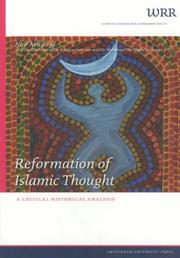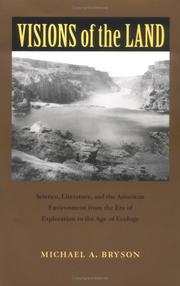| Listing 1 - 8 of 8 |
Sort by
|
Book
ISBN: 2847888543 2847888535 9782847888539 9782847888522 2847888527 Year: 2017 Publisher: Lyon
Abstract | Keywords | Export | Availability | Bookmark
 Loading...
Loading...Choose an application
- Reference Manager
- EndNote
- RefWorks (Direct export to RefWorks)
Peut-on identifier la signification comme objet spécifique d’un seul domaine d’études ? Bien avant l’institution de la sémantique au XIXe siècle, la signification est analysée empiriquement par les lexicographes. S’agit-il d’une filiation ? La sémantique linguistique naît-elle de la lexicographie monolingue ? Une dialectique, sans cesse réactivée dans le temps et à travers les différentes écoles, s’instaure entre sémanticiens et lexicographes en raison du partage conflictuel de cet objet commun qu’est le sens, ainsi que de toute une série de questions annexes : le statut du mot, l’articulation entre état de langue et histoire, la tension entre norme et usage, le choix entre polysémie ou homonymie, la place du locuteur dans le changement linguistique, etc. Cette dialectique entre un savoir-faire empirique (lexicographie) et un savoir savant (sémantique) en matière de sens ne saurait s’expliquer par les conditions d’émergence et les incertitudes de méthode de la nouvelle discipline. Une méfiance tenace envers les dictionnaires est présente aussi bien chez les philologues du XIXe siècle que chez les linguistes, lexicologues et sémanticiens du XXe siècle travaillant dans des cadres théoriques aussi différents que le structuralisme, le générativisme et le cognitivisme. L’ouvrage explique ainsi les transferts de méthode réciproques entre sémantique et lexicographie et montre à quel point la tension interdisciplinaire est une dynamique constitutive des savoirs sur le sens.
Französisch. --- Français (langue) --- Lexikografie. --- Lexikologie. --- Semantik. --- Dictionnaires --- Histoire et critique --- Lexicologie. --- Geschichte 1800-2000. --- Sémantique. --- Lexicographie --- Language & Linguistics Theory --- sémantique --- dictionnaire --- lexicographie --- sens --- histoire des théories linguistiques

ISBN: 905356828X 9786610958269 9048503973 128095826X 1429454512 9789053568286 9781429454513 9789048503971 9781280958267 Year: 2006 Publisher: Amsterdam : Amsterdam University Press,
Abstract | Keywords | Export | Availability | Bookmark
 Loading...
Loading...Choose an application
- Reference Manager
- EndNote
- RefWorks (Direct export to RefWorks)
Exhaustive coverage of the emergence and development of political Islam and Islamic state
Islam --- Democracy --- Human Rights --- Religious aspects --- Islam. --- Human rights --- Religious aspects. --- Mohammedanism --- Muhammadanism --- Muslimism --- Mussulmanism --- Religions --- Muslims --- Islam and politics. --- Islamische Philosophie. --- Islamische Theologie. --- Reform. --- Doctrines. --- Geschichte 1800-2000. --- Democracy - Religious aspects - Islam
Book
ISBN: 9781934843406 1934843407 1618111361 9781618111364 9781618118516 161811851X Year: 2009 Publisher: Boston Academic Studies Press
Abstract | Keywords | Export | Availability | Bookmark
 Loading...
Loading...Choose an application
- Reference Manager
- EndNote
- RefWorks (Direct export to RefWorks)
This collection of essays on Turgenev, Goncharov, Conrad, Dostoevsky, Blok, Briusov, Gor'kii, Pasternak and Nabokov represents diverse voices but is also unified. One invariant is the recurring distinction between "culture" and "civilization" and the vision of Russia as the bearer of culture because it is "barbaric." Another stance advocates the synthesis of "sense and sensibility" and the vision of "Apollo" and "Dionysus" creating a "civilized culture" together. Those voices that delight in the artificiality of civilization are complemented by those apprehensive of the dangers inherent in barbarism. This collection thus adds new perspectives to the much-debated opposition of vital Russia and a declining West, offering novel interpretations of classics from Oblomov to Lolita and The Idiot to Doctor Zhivago.
Bellettrie. --- Literatur. --- Literature. --- National characteristics, Russian, in literature. --- Russian literature --- Russian literature. --- Russisch. --- Rysk litteratur --- Ryssland --- History and criticism. --- Historia. --- I litteraturen. --- Geschichte 1800-2000. --- Rusland. --- Russia --- Russia. --- In literature. --- Literature
Book
ISBN: 1526132826 1526146738 1526132818 9781526132819 9781526132826 9781526146731 9781526132802 152613280X Year: 2019 Publisher: Manchester : Manchester university press,
Abstract | Keywords | Export | Availability | Bookmark
 Loading...
Loading...Choose an application
- Reference Manager
- EndNote
- RefWorks (Direct export to RefWorks)
This volume offers a stimulating new perspective on the history of historical studies. Through the prism of 'scholarly personae', it explores why historians care about attitudes or dispositions that they consider necessary for studying the past, yet often disagree about what virtues, skills, or competencies are most important. More specifically, the volume explains why models of virtue known as 'personae' have always been contested, yet also can prove remarkably stable, especially with regard to their race, class, and gender assumptions. Covering historical studies across Europe, North America, Africa, and East Asia, How to be a historian will appeal not only to historians of historiography, but to all historians who occasionally wonder: What kind of a historian do I want to be?
Historians. --- Social history. --- Historiography --- History. --- Historiography. --- cultural history. --- cultural transfer. --- epistemic vices. --- epistemic virtues. --- historical studies. --- history of humanities. --- intellectual history. --- scholarly personae. --- scholarly self. --- Geschichtsschreibung. --- Historiker. --- Geschichte 1800-2000.
Book
ISBN: 1283864290 0813552036 9780813552033 9781283864299 9780813551579 9780813551586 0813551579 0813551587 Year: 2011 Publisher: New Brunswick, NJ
Abstract | Keywords | Export | Availability | Bookmark
 Loading...
Loading...Choose an application
- Reference Manager
- EndNote
- RefWorks (Direct export to RefWorks)
Spanning several centuries, Manic Minds traces the multiple ways in which the word "mania" has been used by popular, medical, and academic writers. It reveals why the rhetorical history of the word is key to appreciating descriptions and meanings of the "manic episode." Lisa M. Hermsen examines the way medical professionals analyzed the manic condition during the nineteenth and twentieth centuries and offers the first in-depth analysis of contemporary manic autobiographies: bipolar figures who have written from within the illness itself.
Psychiatry --- Neuropsychiatry --- Bipolar Disorder --- Manic-depressive illness --- Behavioral neurology --- Biological psychiatry --- Neurology --- Bipolar depression --- Bipolar disorder --- Depression, Bipolar --- Depression, Manic --- Manic depression --- Manic-depressive psychoses --- Manic-depressive psychosis --- Melancholia --- Affective disorders --- Psychoses --- Depression, Mental --- Mania --- history. --- methods. --- therapy. --- etiology. --- History. --- Geschichte 1800-2000. --- Affective psychoses, Bipolar --- Bipolar mood disorder --- Psychoses, Manic-depressive
Book
ISBN: 383940312X 3899423127 9783899423129 Year: 2015 Publisher: Bielefeld transcript Verlag
Abstract | Keywords | Export | Availability | Bookmark
 Loading...
Loading...Choose an application
- Reference Manager
- EndNote
- RefWorks (Direct export to RefWorks)
Unter dem Schlagwort des spatial turn erlebt 'Raum' gegenwärtig eine ungeahnte Renaissance in der Geschichtswissenschaft. Was dort schnell zur Mode geworden ist, beschäftigt andere Disziplinen indes schon seit langem. Der interdisziplinär angelegte Band bereitet daher Theorie- und Wissensangebote aus verschiedenen Nachbardisziplinen für historiographische Zwecke auf und lotet zugleich anhand von Fallstudien das Verhältnis von Raum und Kommunikation im 19. und 20. Jahrhundert aus. Dabei steht nichts weniger als die Eignung von Raum als Zentralkategorie für eine neu zu konzipierende Kommunikationsgeschichte zur Disposition. »All jenen, die sich für eine fruchtbare Verbindung von Geschichte und Geopraphie interessieren, sei dieser Sammelband wärmstens empfohlen.« Riccardo Bavaj, Westfälische Forschungen, 57 (2007) »So liegt hier ein Buch vor, das es auf faszinierende Weise schafft, den Raumbegriff davor zu bewahren substanzlose Modeerscheinung zu sein und zeigt, wie viele überaus spannende und wichtige neue Fragen unentdeckt in oft betrachteten Themen warten und durch eine Justierung des Blickwinkels sichtbar werden. Ein großes, ein wichtiges Buch.« Christian Schwarzenegger, medien & zeit, 3 (2005) »Der Sammelband ist ein weiterer eindringlicher Aufruf, Raum als historische Kategorie nun endlich ernsthaft in die Praxis einzubinden [...]. Es ist vorbildlich, wie die Beiträge die sukzessive Selbstzweckwerdung beider Ordnungen während der ›massenmedialen Sattelzeit‹ zwischen 1880 und 1960 herausstellen und dabei betont auf Interdisziplinarität setzen. Man kann nur hoffen, daß dieser innovative Zugang nicht erneut auf taube Ohren stößt.« Roland Cvetkovski, Das Historisch-Politische Buch, 54/5 (2006) »Der Band gehört [...] zu den außergewöhnlichen und herausragenden Publikationen, von denen der aktuelle Raumdiskurs leider nicht sehr viele zu bieten hat.« Ulrike Jureit, H-Soz-u-Kult, 09.03.2006 Besprochen in: Literaturen, 11 (2005)
Cultural studies --- Cultural History. --- Geography. --- History of the 19th Century. --- History of the 20th Century. --- History. --- Media. --- Communication --- Communication. --- Kommunikation. --- Kommunikationstheorie. --- Public spaces --- Raum. --- Space and time --- Space perception --- Space perception. --- Social aspects --- Social aspects. --- Geschichte 1800-2000. --- Geschichte; Raum; Kommunikation; Medien; Geographie; Kulturgeschichte; Geschichte des 19. Jahrhunderts; Geschichte des 20. Jahrhunderts; Geschichtswissenschaft; Space; Media; Geography; Cultural History; History of the 19th Century; History of the 20th Century; History
Book
ISBN: 9061686865 Year: 1999 Publisher: Nijmegen SUN
Abstract | Keywords | Export | Availability | Bookmark
 Loading...
Loading...Choose an application
- Reference Manager
- EndNote
- RefWorks (Direct export to RefWorks)
kunsteducatie --- geschiedenis --- kunsttheorie --- 19de eeuw --- 20ste eeuw --- Nederland --- Sociology of culture --- Netherlands --- Arts --- Study and teaching --- Art --- #VCV monografie 2000 --- 373.67(091) --- Kunstonderwijs ; Nederland ; 1800-2000 --- Art, Occidental --- Art, Visual --- Art, Western (Western countries) --- Arts, Fine --- Arts, Visual --- Fine arts --- Iconography --- Occidental art --- Visual arts --- Western art (Western countries) --- Aesthetics --- History --- Onderwijs ; kunst- architectuuronderwijs ; geschiedenis --- Kunsten --- Cultuur --- Filosofie --- Overzicht --- Overheidsbeleid --- Kunstzinnige vorming --- Kunst --- Oudheid --- China --- Toerisme --- Romeinse Rijk --- Hellenisme --- Griekenland --- Hellas --- Cultuureducatie --- Verbeelding --- Film --- Literatuur --- Muziek --- Schilderkunst --- Tekenkunst --- Vlaanderen --- Vlaams --- Emigratie --- Vrouw --- Art, Primitive --- geschiedenis. --- kunsttheorie. --- 19de eeuw. --- 20ste eeuw. --- Nederland. --- Democratisering

ISBN: 0813921066 0813921074 9786613585912 1280490683 0813921724 9780813921068 9780813921075 9780813921723 Year: 2002 Volume: *1 Publisher: Charlottesville University Press of Virginia
Abstract | Keywords | Export | Availability | Bookmark
 Loading...
Loading...Choose an application
- Reference Manager
- EndNote
- RefWorks (Direct export to RefWorks)
Ultimately, it is an extended meditation on the capacity of using science to live well within nature.
American literature
---
Environmental literature
---
Literature and science
---
Environmental protection in literature
---
Wilderness areas in literature
---
Landscapes in literature
---
Ecology in literature
---
Nature in literature
---
History and criticism
---
History
---
Ecologie dans la littérature
---
Ecologie in de literatuur
---
Landscape in literature
---
Landschap in de literatuur
---
Landschappen in de literatuur
---
Literatuur [Ecologie in de ]
---
Littérature [Ecologie dans la ]
---
Milieubescherming in de literatuur
---
Nature dans la littérature
---
Natuur in de literatuur
---
Paysage dans la littérature
---
Paysages dans la littérature
---
Protection de l'environnement dans la littérature
---
United States
---
Gilman, Charlotte Perkins
---
Eiseley, Loren C.
---
Cooper, Susan Fenimore
---
Byrd, Richard Evelyn
---
Environmental protection in literature.
---
Wilderness areas in literature.
---
Landscapes in literature.
---
Ecology in literature.
---
Nature in literature.
---
Nature in poetry
---
Poetry and science
---
Science and literature
---
Science and poetry
---
Science and the humanities
---
History and criticism.
---
History.
---
American literature - History and criticism
---
Environmental literature - History and criticism
---
Literature and science - United States - History
---
American literature.
---
Environmental literature.
---
Literatur.
---
Literature and science.
---
Natur (Motiv).
---
Umwelt (Motiv).
---
Umwelt
| Listing 1 - 8 of 8 |
Sort by
|

 Search
Search Feedback
Feedback About UniCat
About UniCat  Help
Help News
News